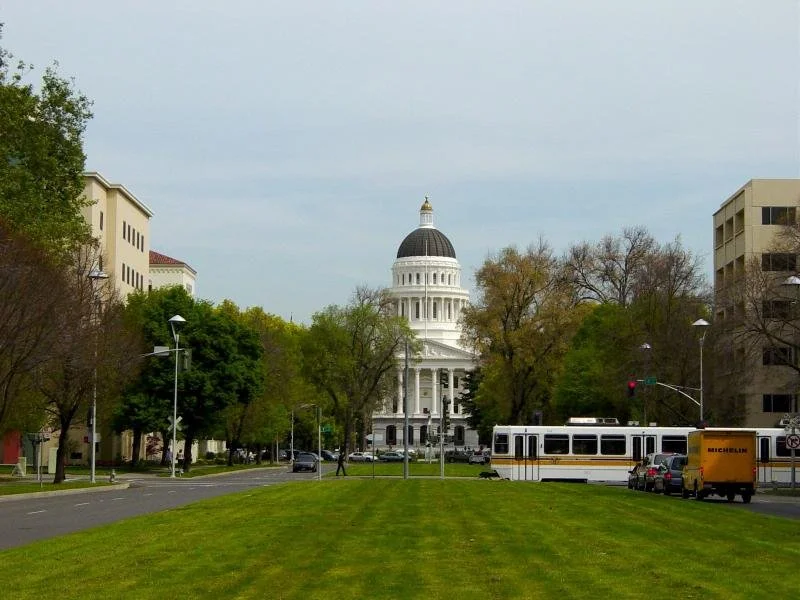Is a Seamless California in our future? New bill could lead to statewide transit governance reforms and new funding
Citing declining rates of transit use statewide prior to the pandemic, as well as the impacts of the COVID-19 pandemic on transit agency finances, a recently announced state bill from Assembly Transportation Committee Chair Laura Friedman, AB 1938, would establish a new statewide task force to recommend reforms and potentially new funding sources for public transit and intercity rail.
By holistically studying governance and funding reforms, this bill can lead to future legislation that can make transit far more efficient, reliable, and abundant, providing a competitive alternative to driving for millions more Californians.
Seamless Bay Area strongly supports AB 1938 and encourages organizations to submit support letters to the Assembly Transportation Committee portal before Monday, March 28th. (Customize our template support letter here).
The Transit and Intercity Rail Recovery Task Force created by AB 1938 would consist of representatives from transit agencies, non-profit organizations, and academic institutions, and have up to two years to submit a report to the state legislature (by January 2025) with detailed recommendations on how to grow public transit use and reduce operational costs. Its report would have to include analysis and recommendations on many important themes of interest to Seamless Bay Area supporters:
Consolidation of transit agencies or having a network manager to coordinate transit routes
Fare coordination and ticketing policies to make transit more accessible, including setting up a zone-based fare system
Using technology to increasing the frequency and reliability of transit, including setting standards for real-time transit information and data
Land use policies that could improve public transit use
Procurement policies, such as whether to create a statewide department for procurement of transit fleets
Other institutional reforms, including whether there should be a state transit department for assisting in planning transit projects.
The bill also calls for the task force to recommend whether the state should create a new revenue source to pay for transit operations or shift existing revenue sources toward transit operations.
AB 1938 builds off of momentum created in the San Francisco Bay Area over the past several years to advance many of these policy initiatives. Due to Bay Area advocacy, many of the topics proposed for inclusion within the bill’s proposed task force have already been studied, or have studies actively underway focused on our nine-county region. The Fare Integration and Coordination Study and the Transformation Action Plan were completed by MTC in 2021, and the Network Management Business Case and Regional Rail Partnerships Study are underway currently.
While much is already going on in our region, Bay Area transit riders should welcome this proposed statewide Task Force, which will surely draw upon and build off of the Bay Area studies, and add further state momentum to advancing many of the legislative and funding reforms that will be needed to actually implement them. It will also address improving the integration of Bay Area transit with systems that go outside the Bay Area, including Capitol Corridor, ACE, San Joaquin systems, Monterey/Santa Cruz Counties - as well as the state’s future High Speed Rail network.
The fact that the bill calls for analyzing and recommending consolidations and the value of creating a network manager is extremely important to help increase understanding of these topics among state legislators, who would need to actually vote for bills to consolidate agencies or create empowered network managers for any part of the state, including for the Bay Area.
Finally, one of the most important parts of the proposed task force’s scope will be studying the need for additional statewide operating funding. Transit operations have been underfunded across the state for decades, resulting in less service and ridership in the Bay Area than regions with comparable density. The lack of adequate statewide funding for transit also forces local jurisdictions and agencies to raise their own funds through local ballot initiatives - which further entrenches fragmentation.
A new stable, statewide source of funding is the best way to increase transit use and decrease transportation emissions across the state, and can provide the necessary funding for policies like integrated fares and service. We commend Assemblymember Laura Friedman for taking on this important issue, which is critical to the future of public transit in the state.
Groups can support AB 1938 by submitting support letters by Monday, March 28th, ahead of the April 4th hearing of the Assembly Transportation Committee. Seamless Bay Area developed a template letter you can customize with your organization’s logo and signature.

